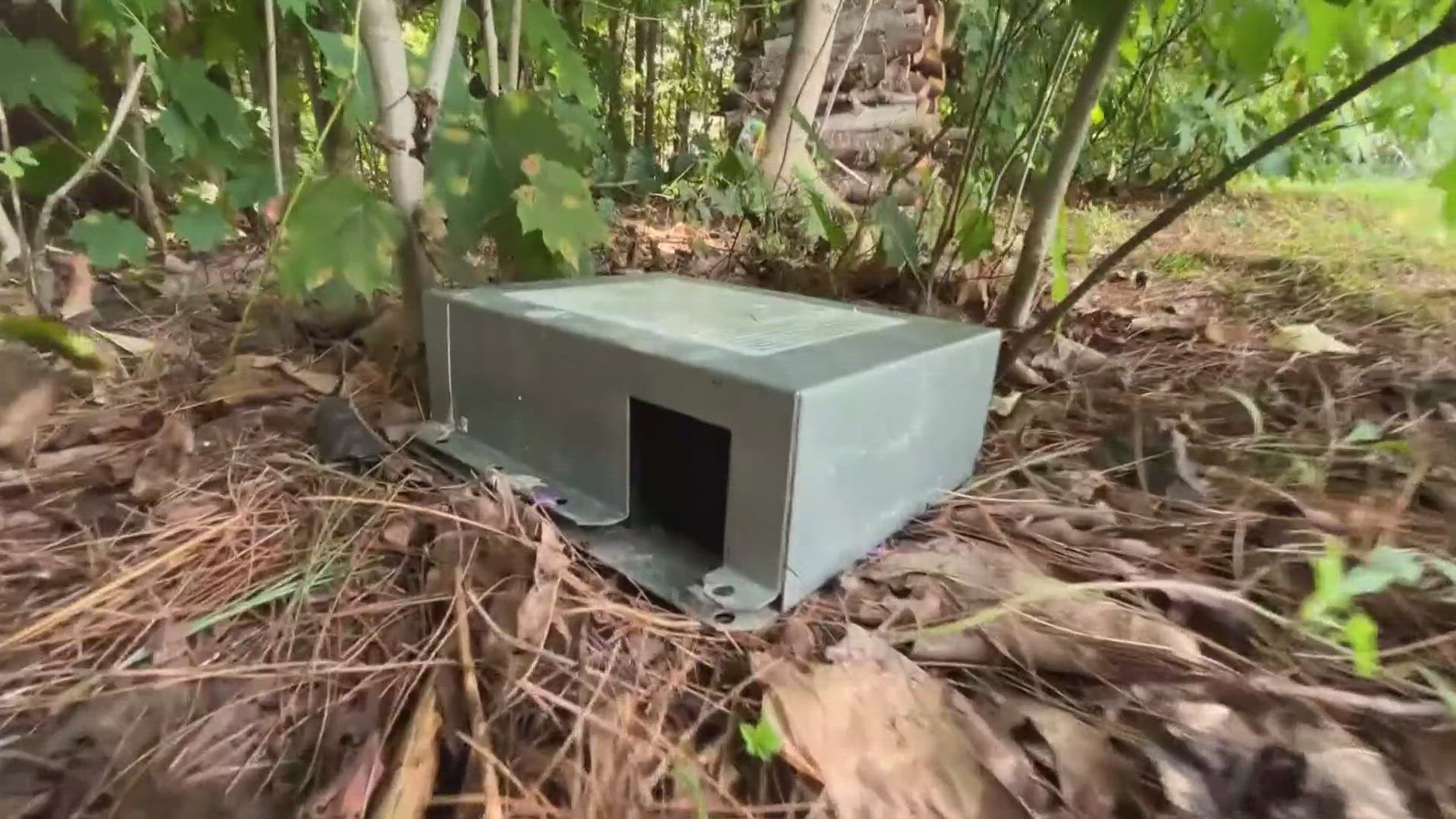NORTH YARMOUTH, Maine — More homeowners are turning to technology to fight ticks without as much environmental impact as some traditional methods, such as spraying pesticides.
Tick boxes are designed to attract mice and other rodents, which are the primary carriers of ticks that bring a risk of Lyme and other tickborne diseases. Research shows tick boxes take longer to have an impact than spraying, but they can be more than 90 percent effective within two years.
Alicia Dostillo's silver Labrador, Oppa, loves playing catch in their sprawling yard, even on a steamy hot day.
When the family moved into their North Yarmouth home seven years ago, being outdoors posed a risk for tickborne diseases.
"My daughter was out riding her bike, and she put her helmet down on the grass. When we picked it up, there were four ticks on it," Dostillo recalled.
Dostillo had her property sprayed with an organic pesticide in an effort to not harm insects and her groundwater. She also tried spraying synthetic pesticides, but the ticks persisted. Then, a friend told her about tick boxes.
"I haven't seen any ticks on any of us from being in our yard," Dostillo said.
Jon Cole, the owner of Northwood Tick Control, is a master pesticide applicator. Last year, he installed half a dozen tick box control systems between Dostillo's yard and wooded areas. He said more customers request boxes to fight ticks without spraying pesticides.
The boxes contain bait attracting white-footed field mice, chipmunks, and other rodents.
"The rodents go inside, and over time, there will be fewer ticks on them, and that means fewer ticks on humans and pets," Cole explained.
As the rodent moves through the box, a wick containing a low dose of the same chemical used in tick-control products for cats and dogs coats its backside. Ticks that attach die after exposure to the insecticide without harming the rodents.
A new technology to fight ticks is also on the horizon.
The LymeShield System features a pellet that inoculates mice against Lyme. It has conditional approval from the U.S. Department of Agriculture and is available in New York state.
"There is a solar eye that tells the trap that a mouse is in there and sends out the pellet; the mouse eats the pellet and is vaccinated," Cole said.
However, tick bait boxes take longer to reduce tick numbers because they focus on the early stages of the tick's life cycle rather than when adults are laying eggs. The boxes cost between $55 and $65, and experts recommend installing five to 10 boxes twice a year in late spring and summer.

